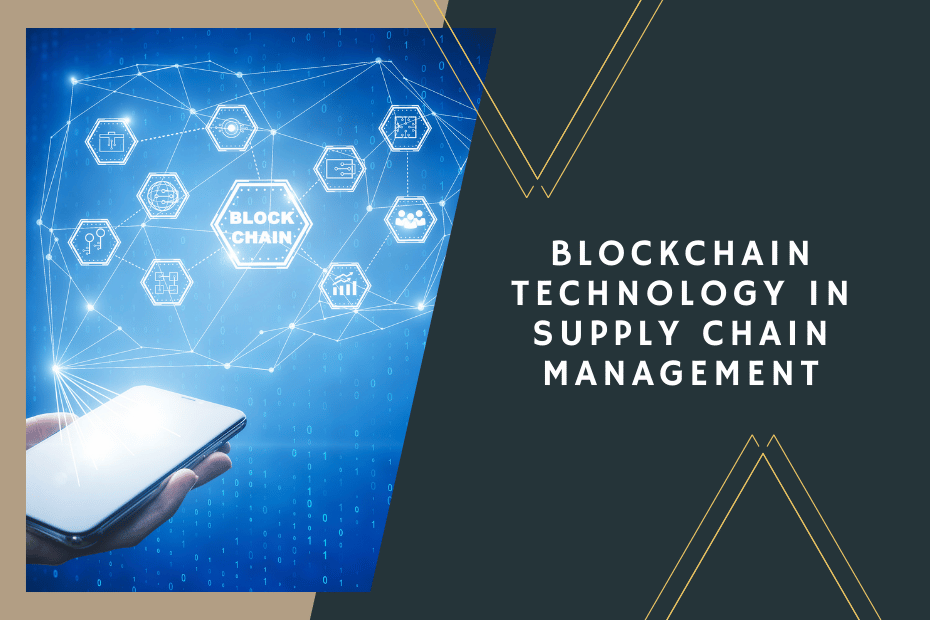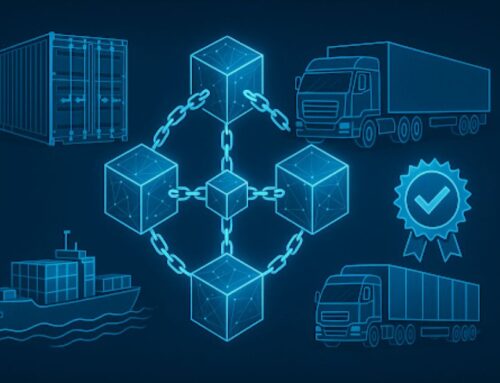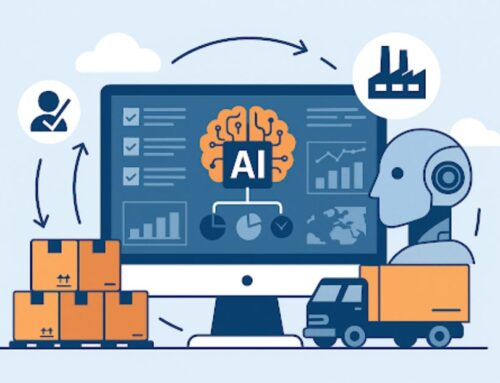In today’s global marketplace, supply chain management has become increasingly complex and demanding. Ensuring transparency and building trust within supply chains are critical for maintaining efficiency, meeting regulatory requirements, and satisfying consumer expectations. Blockchain technology, often associated with cryptocurrencies, offers a transformative solution by providing a decentralized, immutable ledger that can track every transaction and process in the supply chain. This technology promises to enhance transparency, foster trust, and streamline operations. This comprehensive guide delves into how blockchain technology is revolutionizing supply chain management, its practical applications, the challenges of implementation, and the significant benefits it offers to businesses.
Enhancing Transparency
Blockchain technology enhances transparency in supply chain management by creating a shared, immutable record of all transactions. This means that every participant in the supply chain can access the same information in real-time, reducing the chances of fraud and errors. For example, blockchain can record every step a product takes from raw materials to the final consumer, ensuring that all data is accurate and verifiable. This transparency helps businesses build trust with consumers and regulators by providing irrefutable proof of the product’s journey. Companies like IBM and Maersk have implemented blockchain solutions to create more transparent supply chains, which has proven particularly beneficial in industries where product authenticity is critical, such as luxury goods and pharmaceuticals. By leveraging blockchain technology, these companies can trace the origin and journey of products in real-time, offering unprecedented visibility that enhances accountability and trust among all supply chain participants.
Building Trust
Trust is a fundamental component of any effective supply chain, and blockchain significantly enhances it by ensuring data integrity and security. Traditional supply chain systems often suffer from a lack of trust due to data silos and the potential for manipulation. Blockchain addresses these issues by ensuring that once data is entered into the ledger, it cannot be altered or deleted. This immutability fosters a high level of trust among supply chain participants, as everyone can be confident that the information they are using is accurate and untampered. Additionally, blockchain enables the use of smart contracts, which are self-executing contracts with the terms directly written into code. These smart contracts automatically enforce agreements when predetermined conditions are met, further increasing trust and reducing the need for intermediaries. For example, in the food industry, blockchain can verify the origins of ingredients, ensuring they meet safety standards and certifications, thereby increasing consumer confidence in product quality and safety.
Real-World Applications
Blockchain technology is already being used in various industries to improve supply chain transparency and efficiency. For instance, Walmart uses blockchain to track the origin of its food products, which has dramatically improved the speed and accuracy of tracing foodborne illnesses. Similarly, De Beers utilizes blockchain to verify the authenticity and provenance of diamonds, ensuring that consumers can trust that their purchases are conflict-free. These applications demonstrate how blockchain can provide significant benefits in terms of traceability, security, and consumer trust. By leveraging blockchain, companies can not only streamline their operations but also enhance their brand reputation by guaranteeing product authenticity and ethical sourcing. Other industries, such as pharmaceuticals, are also adopting blockchain to prevent counterfeiting and ensure that medications are safe and genuine. The transparency provided by blockchain helps companies meet regulatory requirements and build stronger relationships with customers and partners.
Overcoming Challenges
Despite its many benefits, implementing blockchain in supply chain management presents several challenges. One of the primary obstacles is the integration with existing systems. Many supply chain organizations rely on legacy systems that may not be readily compatible with blockchain technology, leading to significant integration complexities. Scalability is another concern, as current blockchain networks may struggle to handle the high volume of transactions typical in supply chains. Additionally, regulatory and governance issues must be addressed, as the legal framework surrounding blockchain is still evolving. Companies must navigate these challenges carefully, ensuring they have the technical infrastructure and regulatory compliance necessary for successful blockchain adoption. Collaborating with technology providers and industry stakeholders to develop standardized protocols can help mitigate these challenges and facilitate smoother integration of blockchain solutions.
Enhancing Supply Chain Efficiency
Blockchain not only enhances transparency and trust but also improves overall supply chain efficiency. By automating processes through smart contracts and providing real-time data access, blockchain reduces the need for manual interventions and accelerates decision-making. For example, blockchain can streamline the supplier onboarding process by creating an immutable record of vendor details that all network participants can trust. This reduces the time and effort required for new supplier verification and enhances the efficiency of procurement processes. Furthermore, by providing a single, unified view of the supply chain, blockchain helps businesses quickly identify and resolve issues, reducing downtime and improving overall operational efficiency. The automation of routine tasks through blockchain can also lead to significant cost savings and improved resource allocation.
Integrating Emerging Technologies
Blockchain’s integration with other emerging technologies, such as the Internet of Things (IoT) and artificial intelligence (AI), further amplifies its benefits in supply chain management. IoT devices can provide real-time data on the condition and location of goods, which can be recorded on the blockchain to improve traceability and reduce losses. AI can analyze blockchain data to optimize routes, predict demand, and enhance decision-making. This convergence of technologies creates a powerful ecosystem that enhances the visibility, efficiency, and resilience of supply chains. For example, combining blockchain with IoT can ensure that perishable goods are stored and transported under optimal conditions, reducing spoilage and waste. AI-powered analytics can provide deeper insights into supply chain operations, enabling proactive management and continuous improvement.
Addressing Security and Privacy Concerns
While blockchain enhances data security through its immutable ledger, it also raises concerns about data privacy and protection. Companies must ensure that sensitive information is appropriately encrypted and access is restricted to authorized users only. Compliance with data protection regulations, such as the General Data Protection Regulation (GDPR), is critical to maintaining customer trust and avoiding legal repercussions. Implementing robust security measures, such as multi-factor authentication and regular security audits, can help protect blockchain networks from cyber threats. Additionally, businesses should establish clear governance frameworks to manage data sharing and access control, ensuring that all participants adhere to agreed-upon standards and protocols. These measures are essential for addressing the security and privacy concerns associated with blockchain adoption and ensuring that the technology is used responsibly and ethically.
In Conclusion
Blockchain technology holds immense potential to transform supply chain management by enhancing transparency, trust, and efficiency. Its ability to provide a secure, immutable record of transactions addresses many of the challenges faced by traditional supply chain systems. While the implementation of blockchain presents certain challenges, such as integration with existing systems and regulatory compliance, the benefits far outweigh the drawbacks. By adopting blockchain, businesses can create more transparent and trustworthy supply chains, improve operational efficiency, and build stronger relationships with consumers and partners. As more companies recognize the value of blockchain, its adoption is likely to increase, paving the way for more innovative and efficient supply chain solutions.









